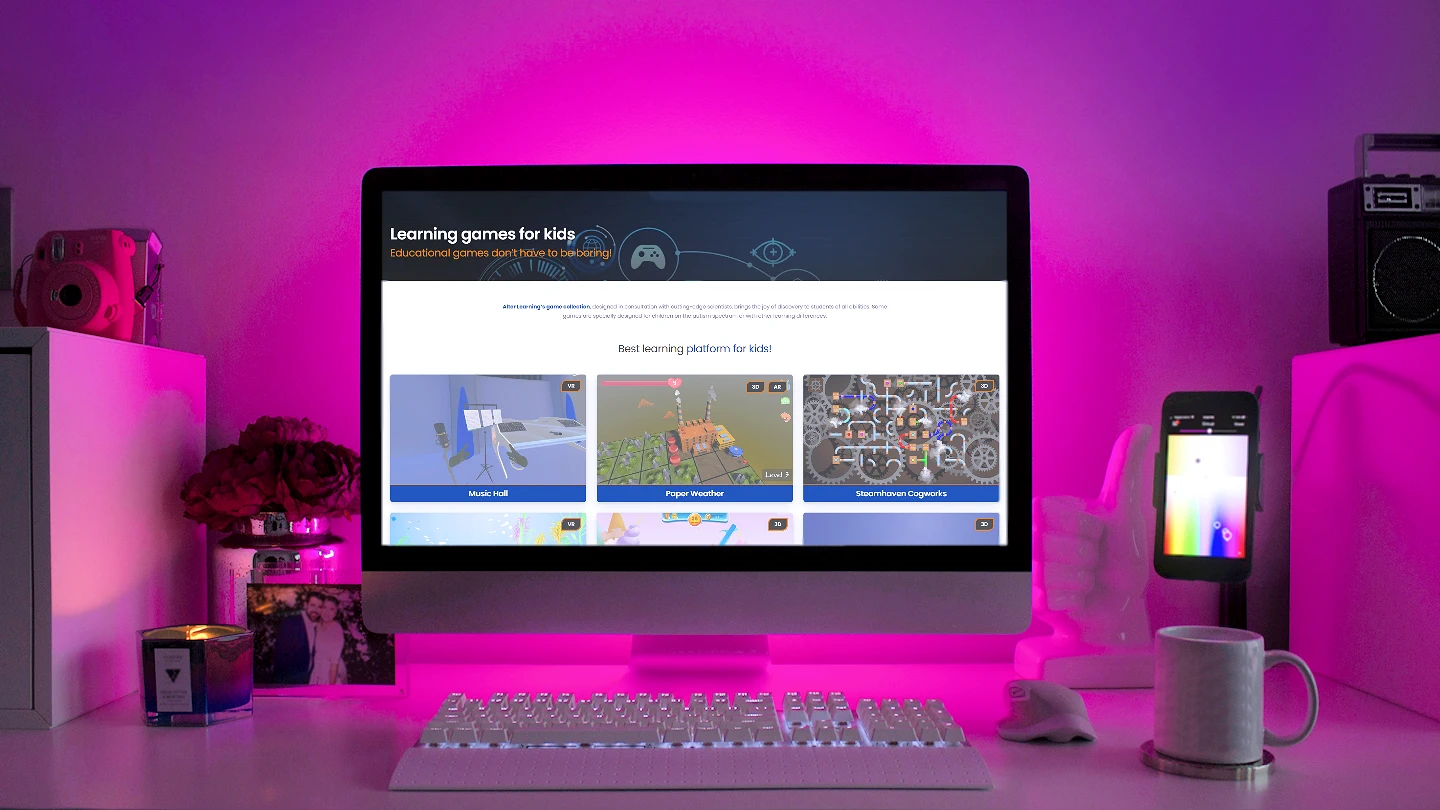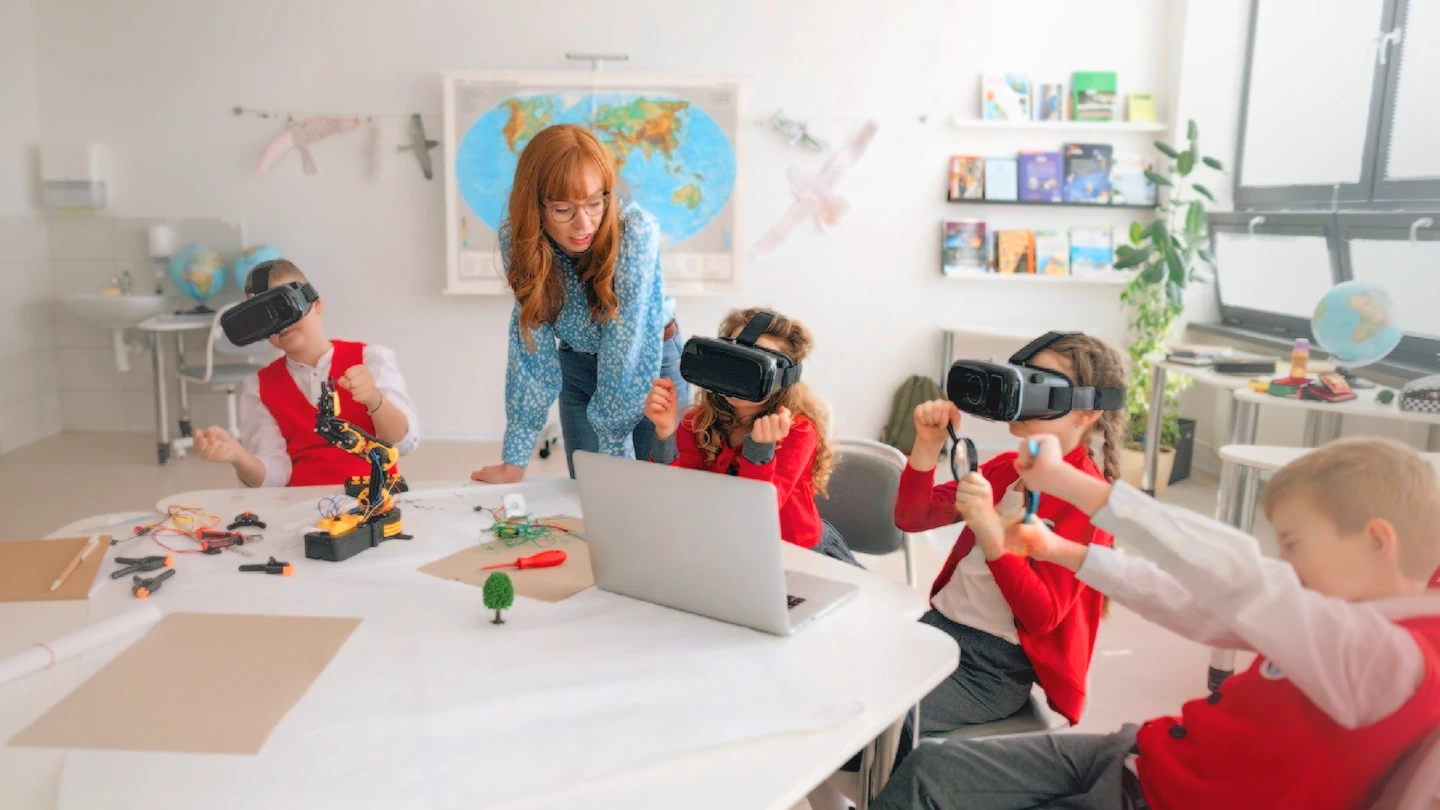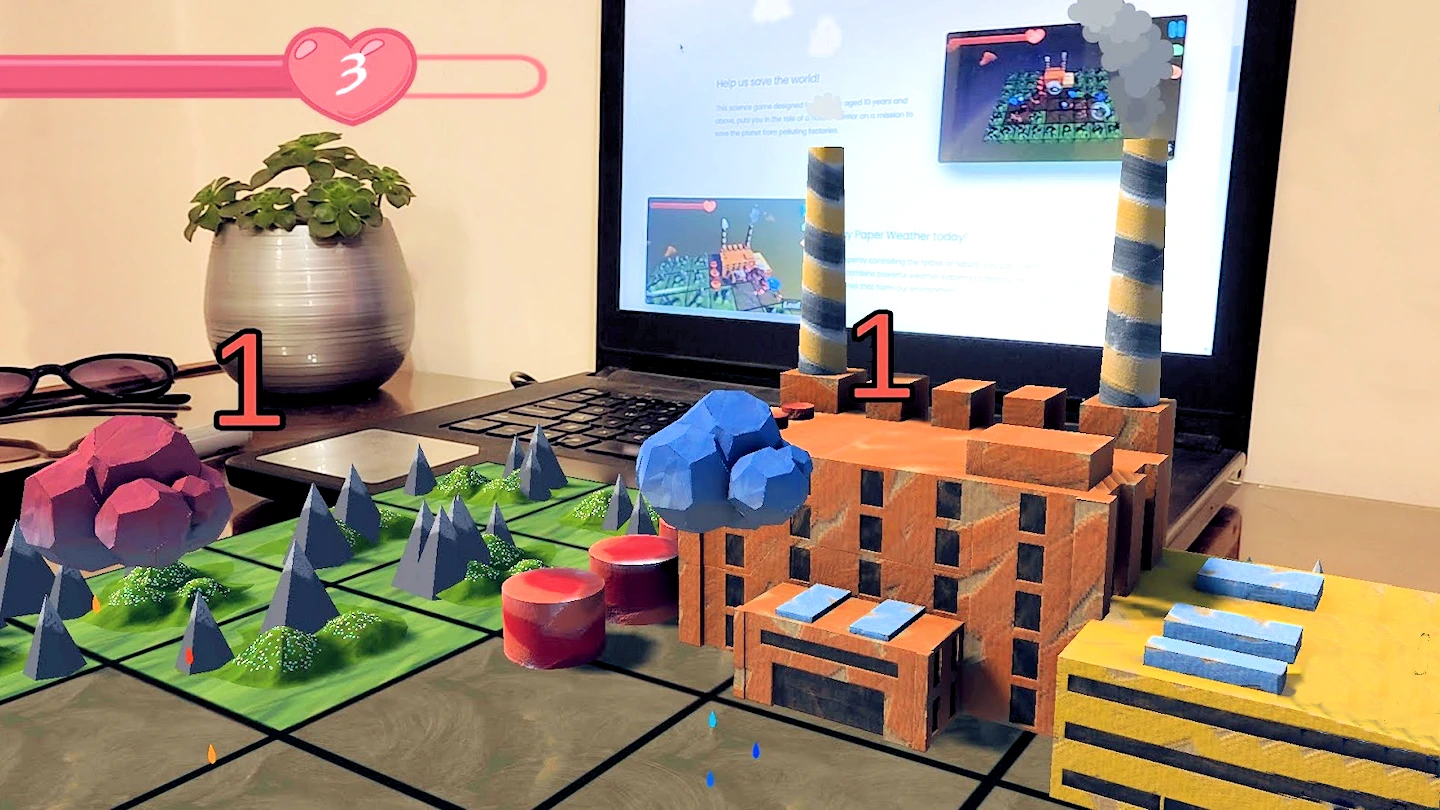What are Alter Learning Games?
At their core, Alter Learning Games merge contemporary video gameplay, dazzling graphics, and captivating mechanics with rich educational content. This potent fusion ensures that learning becomes a cerebral activity and, with our VR and AR games, a full-bodied experience.
Our games, which combine VR and AR technologies, offer a three-dimensional, immersive experience, allowing students to engage with learning in dynamic, interactive, and memorable ways.
Educators worldwide are warming up to the promise held by Alter Learning Games. More than just supplementary tools, these games are gradually earning a spot as primary teaching aids. Interactive modules can cater to diverse learning styles, making education more inclusive. Moreover, with real-time feedback mechanisms, educators can effectively tailor instruction, ensuring no student is left behind.
Cognitive Skills: Beyond the Classroom
The National Library of Medicine provides a study of Video games and board games: Effects of playing practice on cognition. They explored 6 cognitive skills through a variety of testing mechanisms. It is crucial to recognize that this is the first study to explore and confront the cognitive implications of video games and board games in the same statistical model. Additional research will need to occur to build a solid knowledge base.
The study suggests that while video games increased the following cognitive abilities in study participants, board games did not seem to have the same outcomes.
- Fluid Intelligence – Fluid intelligence is the ability to think abstractly, reason quickly, and problem-solve independently of any previously acquired knowledge.
- Mental Flexibility – Mental flexibility is the ability to change your thinking based on shifting demands or expectations.
- Planning – Specifically, executive planning proficiency, incorporating delineation, organization, and integration of behaviors needed to achieve a goal.
- Visual Working Memory – The limited capacity of our mind to temporarily hold and manipulate visual information from our environment, allowing us to attend to and process visual stimuli actively.
- Verbal Working Memory – Verbal working memory is defined as the ability to temporarily store verbal information, with or without further manipulation of this information, in order to fulfill cognitive tasks such as language processing or reasoning.
- Visuospatial Processing – The ability to perceive, analyze, synthesize, manipulate, and transform visual patterns and images. It is involved in recalling and manipulating images to remain oriented in space and keep track of the location of moving objects.
Alter Learning Games – Cognitive Skills Focus
While all video games may increase cognitive skills, it is not always done with purpose. Alter Learning Games purposefully creates games that challenge and increase student’s cognitive skills. We amplify this nurturing process through the following:
- Engagement and Immersion: The immersion guaranteed by VR and AR ensures sustained attention, ensuring learners are passive and active spectators. As concentration deepens, so do comprehension and retention.
- Problem Solving and Critical Thinking: These games often present students with intricate scenarios and puzzles. By navigating these challenges, learners hone their ability to dissect information, think laterally, and derive solutions.
- Spatial Awareness and Understanding: Complex structures, such as the winding wonder of DNA or the vastness of the solar system, can be explored in depth. Such experiential learning deepens understanding and spatial intelligence.
- Memory Enhancement: These games place information deeply into the learner’s memory by engaging multiple senses. The tactile, visual, and auditory stimuli VR and AR offer are pivotal.
Navigating the Digital Maze: Choosing the Right Game
It’s crucial to approach game selection with caution and responsibility. Given the vast digital landscape, parents and educators might feel overwhelmed. However, with the proper guidance, they can navigate this maze effectively. Here are some pointers to streamline the selection process:
- Scope of Educational Content: Look at what’s in the game. Does it fit in with what the learner is already studying or what they are naturally interested in?
- Interactive: Choose games with different ways to interact with each other; this will encourage creativity and a sense of ownership.
- Measures of Safety: Fitting the age is essential. Also, avoid software with questionable content or ads you didn’t request.
Check their Credibility: Look for games that teachers, peers, and organizations recommend. Reviews and word-of-mouth can be helpful.
A Few Alter Learning Games to Consider
- Axe Ninja: Our game is perfect for kids aged 7 and up. It lets you test your aim and accuracy as you tap the screen and throw axes with high precision! The axe-throwing graphics are highly satisfying, and the game offers a progressive challenge.
- Basket Jam: This game is perfect for kids aged 5 and up. It’s all about using your strategic skills to align targets and firing balls at the target from a cannon to get the balls into the right basket. Basket Jam is a fun and challenging game that’s easy to understand and will keep you engaged for hours on end!
- Shape Pop: This puzzle game is designed for children aged 3 and above. Its objective is to match groups of tiles by attribute to clear the board. Each level has a different, more challenging goal.
Summary
Alter Learning Games represent a transformative approach to education, seamlessly blending engaging gameplay with robust cognitive skill development. As educators and parents recognize the profound impact these games can have, they are increasingly integrating them into learning environments, making education more interactive and inclusive. The evidence from research highlights the unique advantages that well-designed video games offer in enhancing cognitive abilities such as fluid intelligence, mental flexibility, and memory retention. This transformative potential should inspire and motivate us all.
By prioritizing immersive experiences and purposeful challenges, Alter Learning Games not only captivates learners but also equips them with essential skills that extend beyond the classroom. As we navigate the digital landscape of educational tools, it is crucial to choose games thoughtfully, ensuring they align with learners’ needs and interests. Ultimately, by embracing this innovative approach, we can foster a generation of learners who are not only knowledgeable but also skilled problem solvers, critical thinkers, and adaptable individuals ready to thrive in an ever-changing world. We encourage you to try Alter Learning Games and experience the transformative power of education through gameplay.




